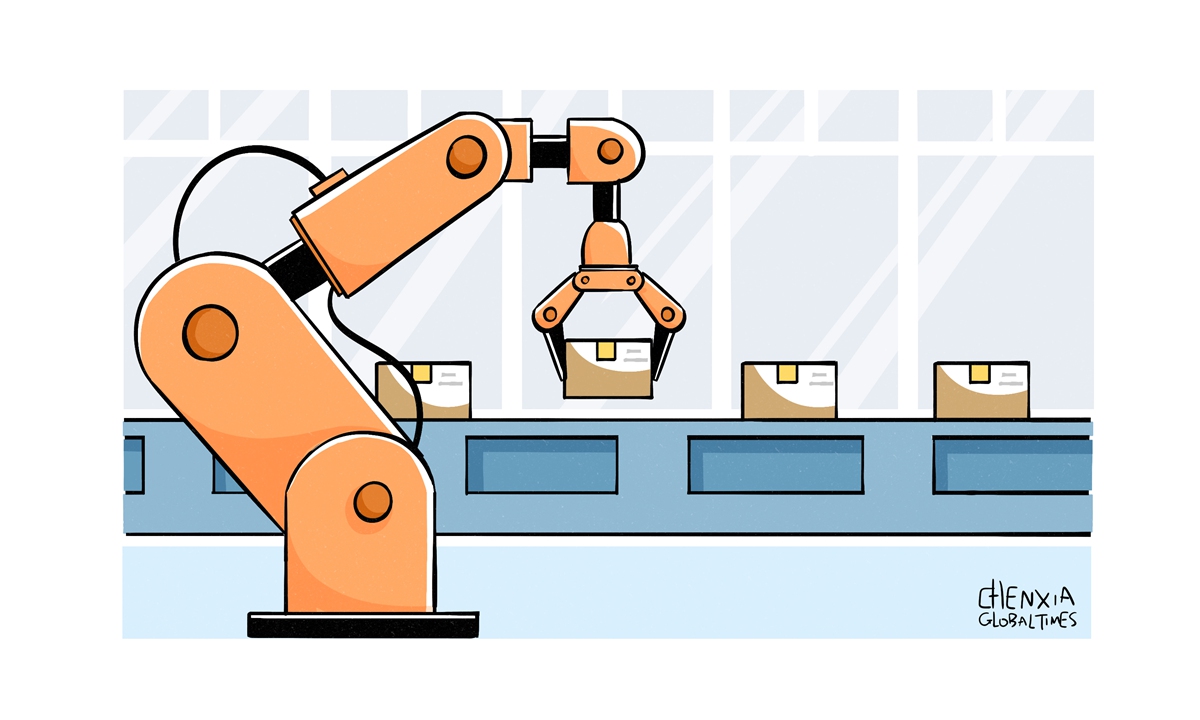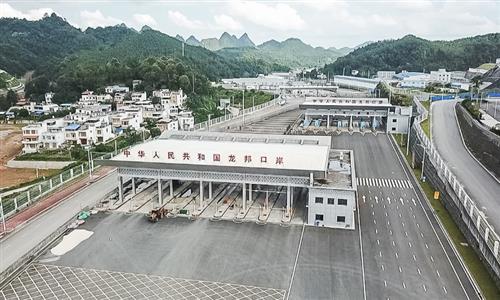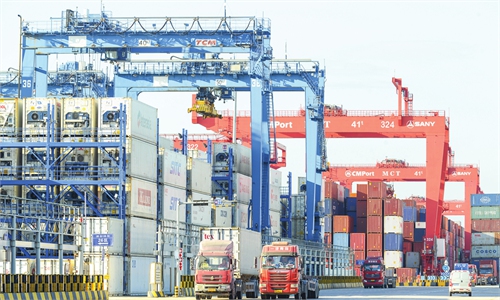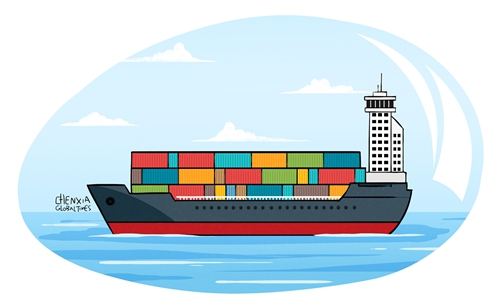
Illustration: Chen Xia/Global Times
The processing trade is one of the sectors most affected by rising labor costs in China. In the eyes of some Westerners, China's labor-intensive processing trade has lost its competitiveness, but the real story of the labor-intensive industry chain is much more complex than the industrial transfer trend as depicted by these pessimists.Chinese authorities recently rolled out a guideline to improve the development of the processing trade. The guideline, regarded as the most important for the reform of China's processing trade since 2016, put forward 12 measures across six categories, involving efforts to encourage the expansion of Chinese domestic markets for processing trade.
Processing trade refers to the business activity of importing all or parts of raw and auxiliary materials, parts, accessories and packaging materials, and re-exporting finished products after processing or assembly is completed by companies within China. But people's concept of China's processing trade needs to change, as the country promotes sales of finished products in the domestic market and also integrates the development of domestic and foreign trade.
The processing trade is an important aspect of international industrial transfers. Since China launched its epochal reform and opening-up drive in 1978, the country has utilized an organic combination of capital, techniques, management and other advantages of foreign investment with the advantage of low-cost elements in China, such as the labor force, and it has become a globally oriented processing and manufacturing base.
The proportion of processing trade in China's foreign trade peaked at 53 percent in 1998. It plays an important role in the foreign trade and national economic development of China.
The international environment and domestic conditions for the development of the processing trade have undergone material changes. On the one hand, increasing labor costs have put pressure on traditional sectors in the coastal regions. Meanwhile, the rise of trade protectionism in the US-led West, as well as weak external demand, have posed challenges to China's processing trade, especially the development of labor-intensive industries.
On the other hand, China's foreign trade also has new opportunities. The rise of domestic consumer power in China is becoming a new advantage in China's foreign trade. China's economic miracle in the past few decades has led to the rise of its middle class, making China an increasingly important importer in the global industry chain and a consumer market for finished products.
China has strengthened the integration of domestic and foreign trade. Efforts have been made to break down industry barriers, promote the convergence of domestic and international standards, and accelerate the mutual recognition in conformity assessment.
Recently, some Western media outlets have run reports about "industrial transfers," "the withdrawal of foreign investment" and "economic decoupling from China," which constitute a new round of bad-mouthing China's economy with a sinister intention. Some Westerners always like to exaggerate the risks faced by the Chinese economy and deliberately ignore its positive aspects.
The issuance of guidance on the processing trade at this time shows that Chinese policymakers are accelerating the integration of China's foreign trade advantages and consumption advantages. China is the world's largest trading country and the second-largest consumer market.
The power of this fusion will be astonishing. It will create new advantages for the development of China's processing trade, and promote China's transformation from a world factory relying on cheap labor to a trading powerhouse.
The guidance also said China will encourage the processing trade of high value-added products, while supporting the development of advanced manufacturing and strategic emerging industries in the processing trade. It is expected that more favorable policies will be introduced, promoting China's foreign trade reform to create new advantages in the global competition.
The author is a reporter with the Global Times. bizopinion@globaltimes.com.cn



